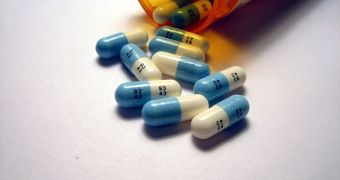Nearly one in four people living in Montreal, Canada, take some kind of anti-depressant, and a new research discovered that the drugs pass into the waterways and affect fish.
The leaders of the study are Dr. Sébastien Sauvé at the University of Montreal's Department of Chemistry and André Lajeunesse, a PhD candidate, and their team discovered that the anti-depressants accumulate in fish tissues and affect the brain activity of the fish.
Montreal is basically an island surrounded by the Saint Lawrence River, a major international waterway that connects the Atlantic Ocean to the Great Lakes, and Sauvé has been analyzing the chemical pollution of the water system for years now.
He explains that “Montreal has a very basic sewage system – the city basically only removes solids, there's no disinfecting of the water.
“In any case, the chemical structure of anti-depressants makes them extremely difficult to remove from sewage, even with the most sophisticated systems available.”
The researcher stressed that there is no immediate danger to humans, because, according to him, “the amount of anti-depressants being released into our river works out to roughly the equivalent of a grain of salt in an Olympic-size swimming pool.
“That's not enough to affect people, should they are brave enough to go fishing out there – I'd be more worried about the trace metals!
“Nevertheless, we are seeing an impact on the river's ecosystem, which should concern cities everywhere.”
There is not enough information about the possible toxicity of these substances on fish, but the researchers suggest an interesting way of tracking their early biological effects.
Lajeunesse said that “since the acute toxicity of antidepressants is less probable toward aquatic organisms, chronic toxicity remained possible.
“In this way, the suggested biomarker involved in the serotonin regulation in the brain may represent a promising means of determining subtle biological effects to fish.”
Chronic toxicity is the damage made from long-term exposure, and acute toxicity is really about more immediate harm following a single high-dose incident.
Serotonin is a chemical that plays a very important role in feelings of happiness, and this is why sometimes people call it the 'happy hormone.'
These findings have an international importance because the sewage treatment system of the city of Montreal is similar to that in use in other major cities, and furthermore, it is said to be the third largest treatment system in the world.
Obviously, further research is necessary to see exactly what the consequences of anti-depressant exposure in fish are.

 14 DAY TRIAL //
14 DAY TRIAL //